Assembled here are key sources that have shaped the modern Middle East, Zionism and Israel. We have included items that give texture, perspective and opinion to historical context. Many of these sources are mentioned in the Era summaries and contain explanatory introductions.
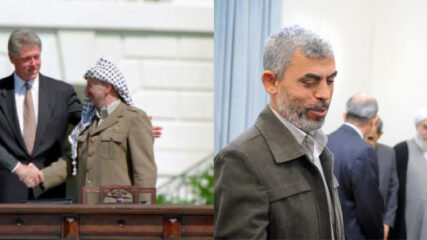
For more than a century, Arab and Muslim leaders have expressed hatred for Jews, Zionism and Israel, although some have pointed internally for the failures of the Palestinian Arab national movement.

The Israel State Archives’ “The Six Day War Files” includes Cabinet and Security Cabinet meeting transcripts that were classified for 50 years.
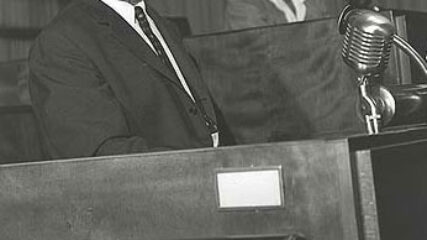
Two days after the conclusion of the June 1967 War, Eshkol, recounts the series of events that led to war, the war itself and the immediate aftermath. He reaches out to Arab states for peace seeking a path to peace with her belligerent neighbors. A week later, Israel will quietly messages Cairo and Damascus through the US, hat Israel seeks an end to the conflict. No answers are received.
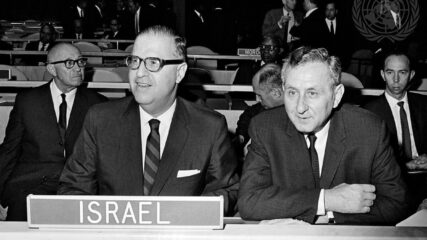
Following the conclusion of the June 1967 War, the Israeli government sent word to Egypt and Syria seeking peace plan that was intended to jumpstart a peace process with Israel’s belligerent neighbors, Egypt and Syria. The messages were sent through the US, but no response was apparently received.
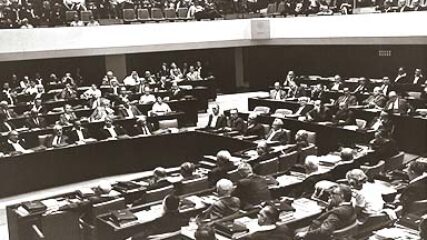
After the June 1967 war, the Israeli government sent word through the United States to Egypt and Syria seeking to jump-start a peace process. Apparently no response was received.

U.S. Secretary of State Kissinger failed to persuade Syrian President Assad to attend the December 1973 Geneva Middle East Peace Conference. Assad saw the proposed conference, which it was, a ruse to cover up a “pre-cooked” Israeli-Egyptian arrangement. Assad wanted no part of implicitly supporting any agreement where Israel’s legitimacy might be enhanced.

On the Golan Heights, Israel agrees to a limited withdrawal, and the United Nations places forces between the Syrian and Israeli armies. With few exceptions this border remains quiet for more than 40 years.
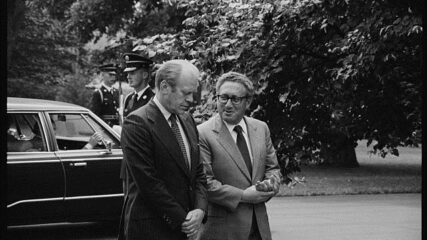
President Ford promises that the US will give “weight” to any future Israeli peace agreement with Syria that Israel should remain in the Golan Heights.
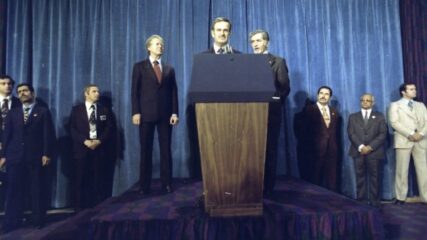
This meeting was the only one between U.S. President Carter and Syrian President Assad during the Carter administration. Carter wanted to learn Assad’s requirements for an agreement with Israel. Assad doubted that the Saudis would join this process. In the end, Assad made it clear that he was not rushing into an agreement with Israel, even if asked by the United States. Carter acknowledged knowing little about the Palestinian refugee issue and said the U.S. was committed to the security of Israel.
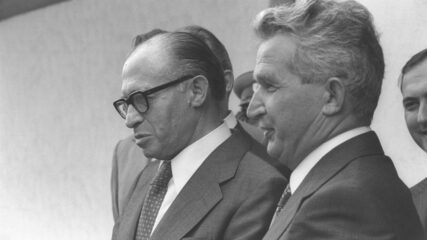
Unknown to the Carter administration and one month before it issued the US-Soviet Declaration to convene an international Middle East Peace Conference, Prime Minister Begin tells the cabinet that he learned from the Rumanian president that Sadat wishes to have Israeli and Egyptian representatives meet in secret talks. That bi-lateral Dayan -Tuhami meeting takes place on September 16. Begin refers to advanced drafts of proposed treaties between Israel and each Arab state; he presents details about Rumanian Jewish immigration to Israel.
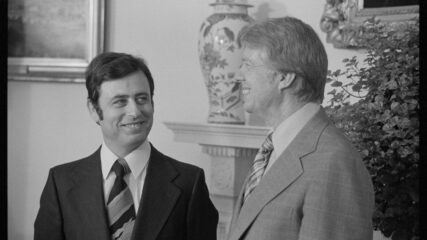
In two meetings at the White House, the Syrian foreign minister insists on the PLO’s presence at a regional peace conference and wins U.S. support for some kind of Palestinian “entity.”
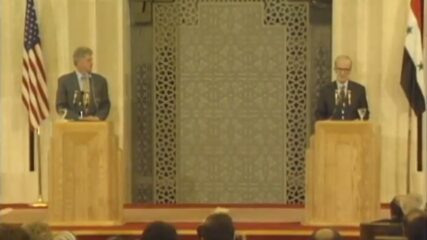
A day after the signing of the Jordan-Israel peace treaty and hours before addressing the Knesset, U.S. President Bill Clinton meets with his Syrian counterpart, Hafez al-Assad, in Damascus and expresses optimism that Syria will be part of a comprehensive Middle East peace. Assad continues to insist on the full return of the Golan Heights.
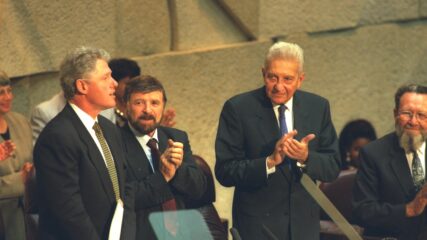
In only the second Knesset address by a U.S. president, Bill Clinton hails the treaty Jordan and Israel signed the previous day as part of a peaceful wave sweeping the region, including the year-old Oslo Accords and soon a likely treaty with Syria.
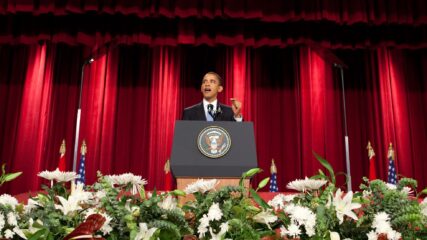
Barack Obama, while seeking to improve America’s image by urging an end to violence and stereotypes, emphasizes the need for a two-state Israeli-Palestinian solution as part of a reset of U.S. relations with the Muslim world. His advocacy of soft power distinguishes his administration from George W. Bush’s use of force. Nine years later, Donald Trump’s secretary of state, also in Cairo, heavily criticizes the Obama soft-power approach.
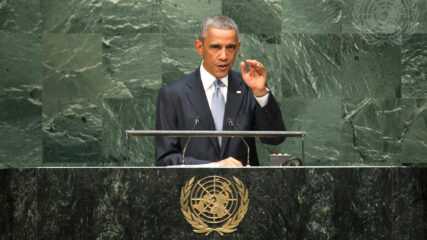
The U.S. president announces a coalition of countries to fight the Islamic State in Syria and Iraq. His plan calls for limited U.S. military action with supplies provided to others fighting on the ground.

U.S. President Donald Trump recognizes Israeli sovereignty over the Golan Heights more than 37 years after Israel annexed the mountains.

Netanyahu’s speech reflected on the needed elimination of Hezbollah as an enemy of Israel, a powerful militia fighting in Lebanon against Israel for four decades. On the day of Netanyahu’s speech, the Israeli Air Force killed Hassan Nasrallah, the Hezbollah leader in his Beirut offices along with other Hezbollah officials.
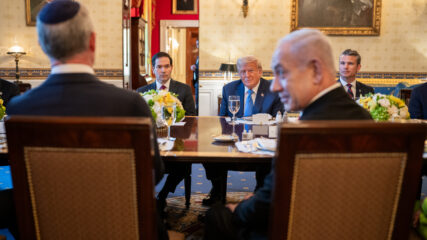
Before a White House dinner, President Trump and Prime Minister Benjamin Netanyahu talk about Gaza, Iran, Syria and Middle East peace.

















